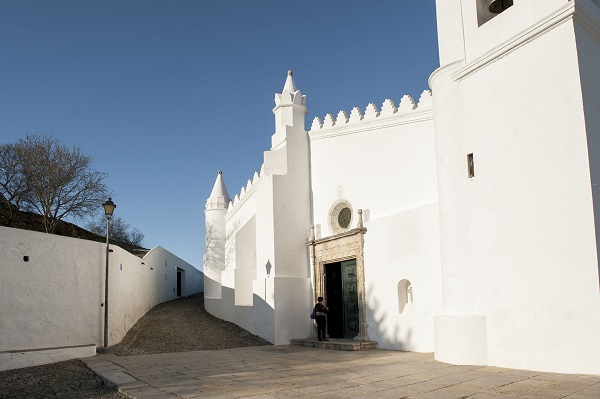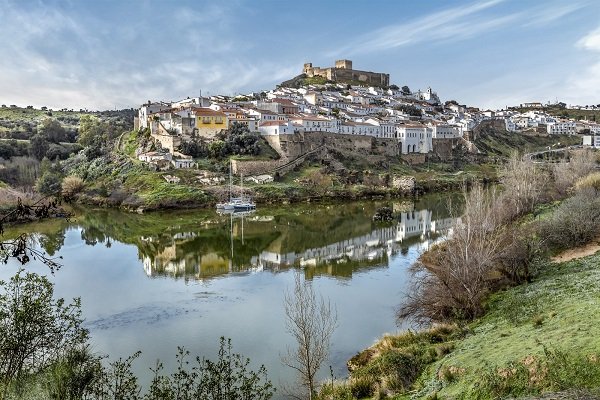The Arabs arrived in the Alentejo in the 8th century and ruled until 1249 when the Reconquista brought the last of their lands into the new kingdom of Portugal. This period saw a boom in learning and arts, with the introduction of decorated ceramic tiles, or azulejos, as well as weaving of tapestries and carpets, leather goods and jewelry crafting.
Today, the narrow streets and cobbled alleys of simple, white washed homes, a common feature of the Alentejo’s fortified hilltop villages, are a legacy of the period.
One of the best-known Moorish remains is the church at Mértola, where the slender columns, Islamic ‘keyhole’ doorways and architecture give away the fact that it was once a mosque, dating from the 12th century.


The Moors would leave a cultural impression on the place names, language and food. Many Arabic words remain in Portuguese. Words as simple as Bairro (neighborhood), cabide (hanger), sofá (sofa), marfim (ivory) and almofada (pillow). Oxalá - comes from insha’Allah — meaning "God willing.”
And then there are names of places, most towns south of the Tejo have Arab or Roman names. There are the remains of buildings, such as the ruined castles in Alcáçar and Moura, and the only still-standing mosque in Mértola. Throughout the South, minaret shaped chimneys are common on houses. And, the cataplana, a clam shell shaped pressure cooker made of copper is not unlike a Moroccan tagine. The Moors gave Portugal lemons, cilantro, and raisins. In fact, there is a cilantro line in Portugal, the herb is used mostly South of the Tejo.
Mértola is called 'the most Arab town in Portugal’. First called Myrtillus Romana, the town flourished under the Romans. In the 8th century, the arrival of the Moors brought a renewed prosperity. Mértola is an archaeological treasure, with excavations revealing remains from the town’s many rulers from the past 2,500 years. The deep cistern and tall castle keep are signs of the town’s warlike past. But it also has the only still-standing Medieval Moorish Mosque in Portugal. The square mosque, now the church of Santa Maria, is a unique example of the lost riches of Moorish Portugal. Mértola plays host to an Islamic Festival every two years in May, when it is decorated to resemble a souk. The festivities run for a few days with typical Arabic music, food and crafts.



